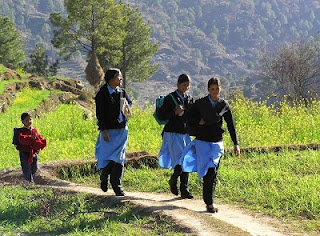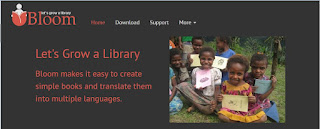[MLE] Policy Brief - Reading Solutions for girls

Policy Brief - Reading Solutions for girls in a multilingual setting The 2015 Echidna Global Scholars Policy Brief has this year been titled Reading solutions for girls; Combating social, pedagogical, and systemic issues for tribal girls' multilingual education in India. The 28 page Policy Brief has been written by Suman Sachdeva, Technical Director Education, CARE India. Here are a few highlights taken from a summary on the brooking website : The current approach to delivering effective multilingual education (MLE) for tribal students where tribal populations are more than 30 percent of the local population and where there are more than three dialects is inadequate overall and ignores gender-specific educational challenges. Although evidence suggests there is a small gender gap in reading ability between tribal girls and boys, in general girls are more heavily impacted by inadequate language skills in the short and long term as they become more vuln...






